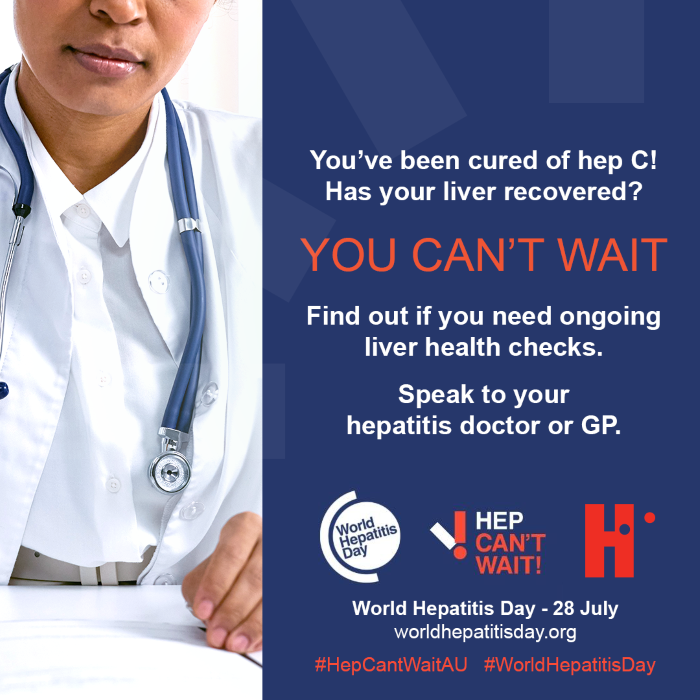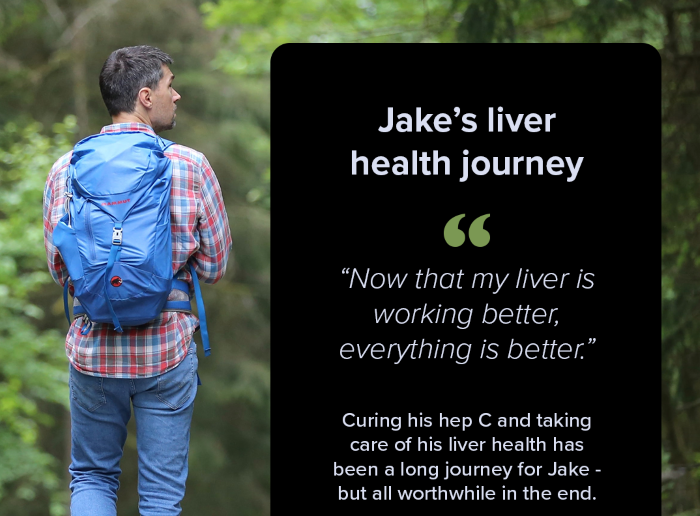World Hepatitis Day is marked globally on 28 July. This is part of a worldwide campaign to see an end to viral hepatitis. In 2023 the theme is hep can’t wait, reminding us that hepatitis C remains an important issue for our community and that acting now is vital. This year landmarks around Australia glowed green on World Hepatitis Day to raise awareness about the campaign.

Hepatitis C has had a profound effect on our community. In Australia many people with bleeding disorders acquired hepatitis C from their plasma-derived clotting factor treatment products or other blood products before 1993. Several safety measures were introduced by 1993 and the risk of bloodborne viruses from plasma-derived clotting factor products in Australia is now considered to be extremely low. But many people in our community live on with the consequences of those early infections.
As a Partner in the national World Hepatitis Day Campaign, HFA works with Hepatitis Australia and the state and territory Haemophilia Foundations on the annual Australian awareness campaign and is committed to making a difference on hepatitis C in Australia.

Current hep C treatments are radically different to the early interferon treatments. They are now a once-daily tablet, with few if any side-effects and very high cure rates. Many Australians with bleeding disorders and hepatitis C have now had treatment and been cured – but some need ongoing care for their liver health.
Were you cured? Has your liver recovered?
It’s a temptation to put your liver health out of your mind once you are cured. But if you don’t know what your liver test results were when you were cured, don’t wait to find out. Take the time to contact your hepatitis doctor or your GP and ask them.
REMEMBER
If you had cirrhosis or extensive scarring before being treated and cured of hep C, you will still need to have a liver ultrasound scan every 6 months long-term.
Sadly, some people with bleeding disorders and hep C have very advanced liver disease caused by long term infection. Close liaison between hepatitis or liver specialists and Haemophilia Treatment Centres is very important for care and treatment. Research into management of advanced liver disease is ongoing.

A healthy liver is important to us all. Your liver has a lot of different jobs to do to keep your body working well.
These are some tips from our hepatitis specialists to keep your liver in good shape.





We are grateful to Alex and Jake for sharing their experiences with hep C – being cured and caring for their liver health. You can read Alex’s story in this issue of National Haemophilia. Jake’s story is available on the HFA website – click here to read it.

For some women and men with mild haemophilia and VWD, who perhaps only had one or two treatments in their lifetime, it has been a surprise to find out they were exposed to hepatitis C.
If you ever had a blood product before 1993, including blood transfusions and plasma-derived clotting factor concentrates, you could be at risk of hepatitis C.
You may have been wondering about testing and not got around to it yet. But now is the time to talk to your doctor about a hep C test – and have treatment to be cured, if you do have hep C! Hep C tests are simple blood tests.
Visit
Haemophilia Foundation Australia acknowledges the Traditional Owners and Custodians of Country throughout Australia, the land, waters and community where we walk, live, meet and work. We pay our respects to Elders past and present and extend that respect to all Aboriginal and Torres Strait Islander peoples.
Sign up for the latest news, events and our free National Haemophilia magazine